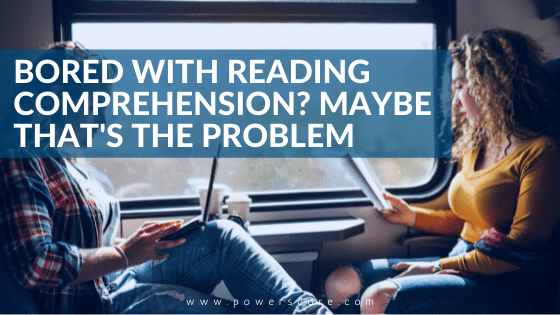Reading Comp may be your worst section. Students often admit boredom with it; “hate” is a commonly used word. Nobody cares about Navajo weaving techniques, 18th century French female poets, or the !Kung people. Why should you? Here’s why:
Low Interest Reading
A number of research studies show that test-takers who report a high level of interest in the topic of a passage also demonstrate higher levels of engagement with the text. The presence of interest improves reading comprehension by facilitating the processes that support comprehension, such as word decoding, lexical access, syntactic processing, inference generation, self-explanation and summarization. A recent study conducted by the LSAC arrived at three conclusions regarding how topic interest affects reading comprehension:
“First, higher-interest readers are more engaged and deliberate when reading than lower-interest readers. Second, higher-interest readers have increased sensitivity to the explicit and implicit discourse structure than lower-interest readers. This impacts the processing of the text. Finally, this increased engagement positively affects comprehension, as evidenced by recall performance.”
Even though higher-interest readers may process texts more slowly and rely more on their “outside” knowledge of the passage topic, such readers ultimately perform better than low-interest readers. Moreover, there is some evidence that interest helps less-skilled readers become more engaged with the text, improving performance.
Heightening Interest
So, how do you become “more interested” in serotonin, Roy Lichtenstein, or Chinese talk-stories? While nothing can replace innate curiosity, you can stimulate such interest by reading journals and magazines, such as The Economist, Scientific American, The New Yorker, or National Geographic. By familiarizing yourself with the topics frequently discussed in such magazines, you improve your chance of coming across similar topics on RC sections. Prior exposure to a given topic invariably heightens interest in that topic, which you can use to your advantage.
Ultimately, “interest” is just one of several “motivational variables.” You know another motivational variable? A top-1% score. Every time you get bored with a passage, remember this: it would be really, really interesting to spend three years in Cambridge (New Haven, not so much).

